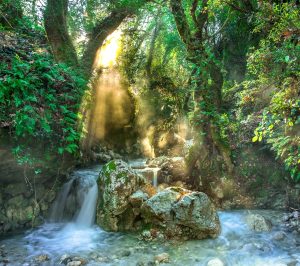Eminent Domain in the Amazon Rainforest?
Being a “dirt lawyer” or owner’s counsel for the past twenty years – you start seeing takings’ law in everyday life. For instance, this past Sunday I read an article in the New York Times – Brazil Found Last Survivors of Amazon Tribe. Now What? (August 20, 2023) In 1989, a government agent, deep in the Amazonian forest, found two of the last known survivors of the “Piripkura people, an offshoot of a larger Indigenous group that once spread across a large swath of the forest.” At that time, Tamandua and Pakyi didn’t want to be found and the government largely ignored their presence amongst the forested hardwoods, which provided a bounty for private logging concerns. Years earlier, the government had sold the property dirt cheap in an effort to “settle” the interior not unlike America’s own 19th century “manifest destiny” to settle the west.
We know how that turned out for the American indigenous peoples, but the question is now squarely before the Brazilian people: “Who has the right to the forest? The ranchers and loggers who hold government titles to the land, or two Indigenous men whose ancestors were here before Brazil had a government?” In 2007, the Brazilian government preserved about 1,000 acres of land for the Piripkura tribe (of 2). The property owner “Francisco Penço, who is Celso Penço’s son, said the government was changing the “rules of the game” after handing out land. If the government wants it for the Piripkura, it should pay the landowners. His family, he calculates, would be owed $45 million to $70 million.” Sounds like a claim for just compensation.
Is there a constitutional right to just compensation in Brazil? Is “inverse condemnation” a recognized legal procedure to institute a claim for an uncompensated government taking? Is it a regulatory taking claim? Would the regulatory takings claim be subject to (confusing) Penn Central test? I don’t know the answer to any of these questions, and I’ve been to Brazil twice and can attest to the fact that the interior of the country is vast, beautiful, and largely undeveloped.
The good news is that we know the answers to all of these questions if you own property in New Jersey. I don’t think that’s going to help the Piripkura people, but I sincerely hope that the government does the right thing and not only preserves their land, but also compensates the owners who’s title was taken for the preservation of a people.








